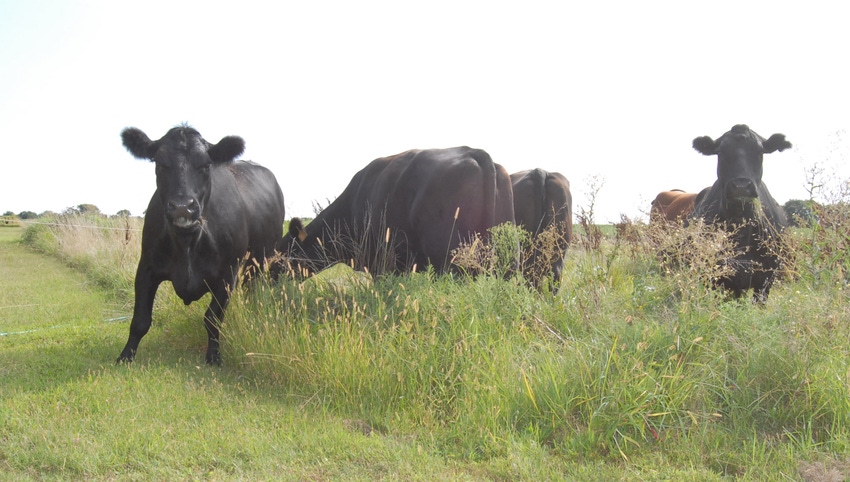
In conversations with my friend Walt Davis it is clear that we are beating to the tune of the same drummer. The drummer is the Master of the natural model. He created a system that is so complex we can never completely understand. Yet, he also has set up a handful of principles for us to use that can result in our prosperity.
Remember that everything is closely connected and reliant on everything else, but the principles do not change. After learning the principles, adhering to them is our job. Water, vitamins, antioxidants, enzymes, trace minerals and certainly microorganisms are essential to our health, reproduction and longevity. The historical record tells us that people were regularly living past a century thousands of years ago. Remember also that the first major culture with health, reproductive and longevity issues was Egypt. Egyptian culture was based on the cereal crop wheat and the loss of meat as a dietary basis. Dental disease, obesity, senility and other health issues we see today became rampant. Also remember nobody is or should be as interested in your health as you should be!
Take the soil health, the plant diversity and the ruminants out and it becomes "lights out." This is a historical fact and can be totally backed up by good science. Davis totally agrees with me on this.
As a veterinarian, I was educated to the fact that germs are bad. Louis Pasteur spent a 19th century career attempting to prove that microorganisms caused disease in man and animals. He had a contemporary by the name Beauchamp who argued that in the natural model the microorganisms that were bad were outnumbered and controlled by the good microbes. On his deathbed, Pasteur was reported as having said that Beauchamp was correct.
This helps us understand a sterile environment yields or gives way to disease and death. The deal concerning good microbes is that we need them and we need them in big numbers. Without them cattle stop chewing their cud and shortly die. Without them we end up with endless diarrhea or severe constipation. When we have less than optimal numbers of good bugs of multiple names and origins we are not feeling good and healthy.
The science of free radicals and antioxidants was not taught to any extent when I was at the university, so my working knowledge is lacking. The list of antioxidants which serve to protect our cells and bodies from chemical, biological and pathogenic (disease-causing) microbial damage is likely exhaustive. Some antioxidants are vitamins C and E, and others are trace minerals such as selenium that stop or slow the cellular deterioration by oxygen following hydrogen removal. Cattle that are foraging on green plants that are high in vitamin E and highly mineralized in turn yield steaks, roasts and ground beef that remains red for much longer periods of time under refrigeration. The same is true for our body. Regulating oxidation with our eating keeps us younger and adds to our youth and health.
Since our bodies cannot produce vitamin C we are dependent on our diet. Citrus and fresh vegetables are important, but I recommend some supplement.
Vitamins are defined as organic substances that are unrelated, found in differing foods in differing amounts and are necessary for cellular integrity and protection and normal metabolic function. In other words, vitamins are important, especially when they are not available or present. Quality beef contains large amounts of B vitamins and vitamin A and E. Vitamins A, E and D are fat soluble which is another reason to eat quality fat. Plants growing on highly mineralized soil with lots of organic matter that have not been pushed with chemical fertilizer and excessive water are much richer in vitamins. The same is true of the cattle harvesting these plants.
There's more here than I can cover in a single blog, but I'll cut to the chase and summarize my human eating recommendations:
Stay away from fast foods and most restaurants.
Stay out of the middle aisles of the supermarket.
Grow and utilize your own fruits and vegetables with highly mineralized compost, not chemical fertilizer. Apply herbal sprays rather than chemical insecticides. Preserve using fermentation, drying, canning and freezing.
Learn how to cook and enjoy cooking. It's fun and rewarding.
Limit sugar intake and eliminate carbonated and sweet drinks from your daily diet.
Get really serious about eating 6-16 ounces of grass-fed beef every day.
Use pork only as a seasoning.
Limit chicken and turkey consumption and also rabbit.
Stay away from catfish and snails.
Take a trace mineral, vitamin C and B-complex supplement every day. Fish oil needs to be included at levels up to 6 grams daily.
Stay hydrated with non-sweetened, clean water.
Take time and make sure you poop every day.
These answers are simple, fun, not expensive and healthy. Remember that our health is a daily deal and is up to us. The ride is a lot more fun when we feel good every day.
About the Author(s)
You May Also Like






